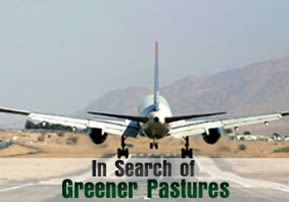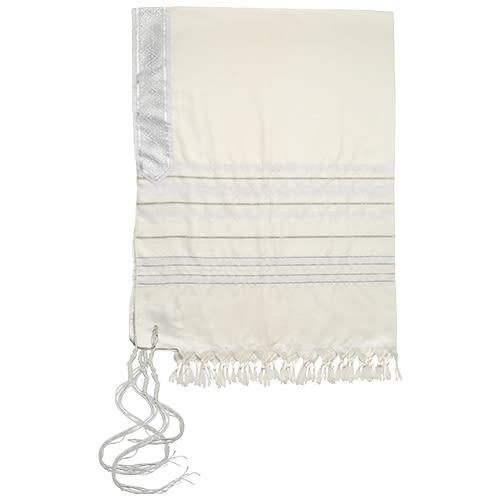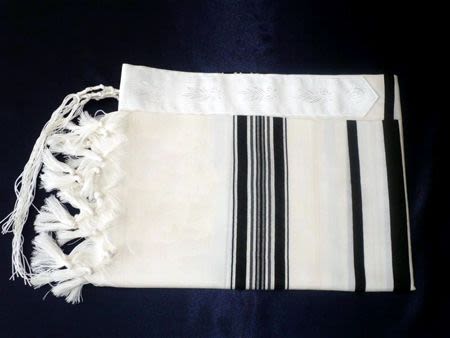
In Search of Greener Pastures
We moved across the globe with a young family, not knowing then that it was a practice run for the life-changing thrill sixteen years later when we would make aliyah to Israel.

Strangers No More, Part 6
The congregation in Vasa treated me well, as did my colleagues. It was certainly a good place to practice, and I quickly learned the routine of the job. I was young and energetic, and I took my work seriously.
After a few years, during which time our second daughter, Sara, was born, I had gained enough experience to seek new horizons. My next challenge took me to the picturesque seaside town of Kristinestad, with fishing villages and farms. I was to be sole minister of this smaller congregation. This meant significantly more responsibility and also management of administrative tasks. I looked forward to working with “my own” Church council and soon I learned that administering and organizing were my favorite duties, along with preaching, of course.
My congregation members were down-to-earth folk – “What you see is what you get.” We lived in a beautiful, mansion-style, old vicarage. The new church was opposite our home. The old church was destroyed in a fire a few years earlier, just before Christmas, an event that still haunted many of its members. The tall bell tower was saved from the fire – a remnant of a bygone era – and still stood proudly on the church hill. The tower was still used as a landmark for sailors and fishermen when entering the port. Every Saturday at 6 P.M., the bell ringer announced the arrival of the day of rest, Sunday, by ringing a beautiful sequence of three bells. These bells played the same tune as the three bells in my hometown church. No wonder I felt at home in this little parish.
The age profile in the parish was quite old. There were more deaths per year than births. Most weeks we heard the same church bells announcing the departure of a dear soul. Family and friends of the departed would gather by the church to listen to the ringing when the “soul swung its way up to God,” although the actual funeral was usually held a week after the death. Sharing both joyful and sorrowful moments with the parishioners can be a daunting task for a minister. It is also the time when parish members put their minister to the test. He has to provide his congregation with support, make visits to the hospital, to private homes, listen to their stories, understand, and sympathize. But during Sunday morning church service, it is the congregation’s turn to listen. This is when the minister delivers his captivating, enthusiastic and educational sermon of the week. Parish members can tolerate a lot, but they draw the line at dull sermons. I accepted these unspoken rules wholeheartedly. A minister must be at the service of his parishioners.
The people of Kristinestad accepted us warmly. When the news came that my wife had delivered twin girls, the congregation felt as if we had come to change the birthrate. Suddenly the parish began to grow. The birthrate had risen. Our youngest daughters, Karolin and Josefin, came into the world on their mother’s birthday in May 1982. Only one month before, Runa had been skiing on the ice covering the Baltic Sea, as part of her regular exercise schedule. During a routine ultrasound check-up after the skiing trip, the doctor could see only one baby. The two were playing hide and seek. To our great joy Karolin and Josefin appeared healthy and beautiful, as had their older sisters, Linda and Sara before them. The midwife, herself childless, asked in all seriousness if she could adopt one of the twins. So identical were the two newborns that we kept one baby’s thumbnail always painted red until they were old enough to tell us who was who.
I have always enjoyed new and demanding challenges. Little did I know that the visit my wife and I paid to her sister in Australia in 1983 would be a catalyst for a new and life-changing adventure. We totally fell in love with the vast and beautiful country. Having only traveled in Scandinavian countries, this was the first time we had enjoyed a warm climate. During our trip, we visited the Finnish Lutheran Church in Brisbane. The minister was completing a five-year-term that was finishing shortly. I didn’t feel excited, but without any doubt, from that moment I had my mind set on filling the vacancy. My wife supported me strongly, although there were many arguments against moving to Brisbane. The house provided for the minister was well below the standard of our home in Finland. And the language! Until now I had worked basically in Swedish. Suddenly I would have to preach in Finnish and English. We would have to uproot the children – how would they be affected? The question was, should we let the thought grow and develop or should we let it go?
We could not let it go. The fascination grew stronger and when the job became available in 1985, I applied. I had to compete with several other candidates, and was interviewed and tested, but was finally found suitable for the challenging job of taking care of the Scandinavian community in the furthest possible location from my homeland. Besides the language, the job itself did not differ greatly from my existing position, but every other aspect presented huge challenges. So we moved across the globe with a young family, not knowing then that it was a practice run for the life-changing thrill sixteen years later when we would make aliyah to Israel.
Our parishioners in Kristinestad, who had welcomed us so warmly, were sad to see us leave, but I was looking to the future and had no time for nostalgia. What saddened me, though, was the prospect of leaving my aging mother. It was bad enough when we lived but a three-hour drive away, now we were moving to the other side of the globe. As much as she loved her children and grandchildren, she had also learned the hard lesson of letting go at the right moment, and she accepted it.
On a cold, snowy April morning in 1985 we left our hometown and set off for Australia. A new adventure had begun.
(Strangers No More, by Shlomo Brunell. Reprinted with courtesy of Gefen Publishing House 2005 www.gefenpublishing.com)














Tell us what you think!
Thank you for your comment!
It will be published after approval by the Editor.